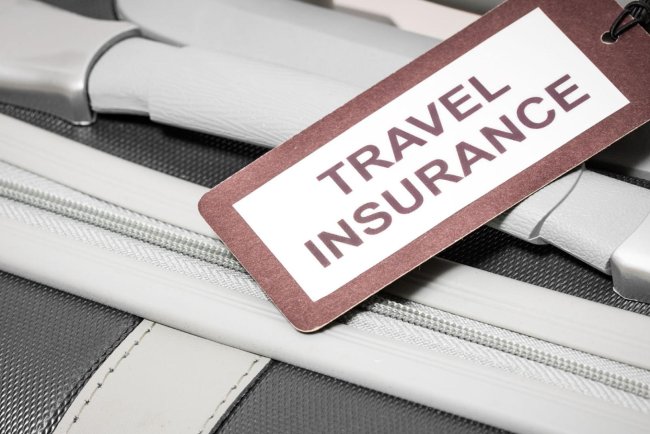1. What are the most common mistakes when submitting a travel insurance claim?
Common mistakes include not reading the policy thoroughly, failing to keep proper documentation, not filing claims in a timely manner, incorrectly filling out claim forms, and ignoring policy exclusions. Other issues include not reporting incidents to authorities, providing incomplete or incorrect evidence, not following up on claims, misunderstanding coverage limits, and not using all available resources.
2. How can I ensure I understand my travel insurance policy fully?
To fully understand your policy, read all the policy documents carefully, including the fine print. Pay close attention to the coverage details, limits, and exclusions. If anything is unclear, contact your insurance provider for clarification and document your understanding for future reference.
3. Why is it important to keep proper documentation for my claim?
Proper documentation substantiates your claim and supports the validity of your expenses or incidents. It includes receipts, incident reports, and any other relevant evidence. Without proper documentation, your claim may be delayed or denied due to insufficient proof.
4. What should I do if I missed the deadline for filing a claim?
If you missed the deadline, contact your insurance provider immediately. Some providers may offer exceptions under certain circumstances. Explain your situation and provide any supporting evidence for the delay. It’s crucial to address this as soon as possible.
5. How can I avoid mistakes when filling out claim forms?
To avoid mistakes, double-check all the information on the claim form before submitting it. Ensure that all fields are accurately completed and that the information matches your documentation. If you’re unsure about any part of the form, seek assistance from your insurance provider.
6. What is the importance of reporting incidents to authorities?
Reporting incidents to local authorities is often required for certain claims, such as theft or accidents. It provides an official record of the incident, which can be critical for processing your claim. Failure to report may result in the denial of your claim.
7. How can I understand the exclusions in my travel insurance policy?
Review your policy documents to identify any exclusions. Exclusions are conditions or situations not covered by your insurance. Understanding these exclusions helps you determine if your claim is valid or if you need to seek alternative solutions.
8. What should I do if I provided incomplete or incorrect evidence with my claim?
If you realize you provided incomplete or incorrect evidence, contact your insurance provider immediately to correct the information. Provide the accurate and complete evidence needed to support your claim. Keeping clear and comprehensive documentation is essential.
9. How often should I follow up on my travel insurance claim?
Follow up on your claim regularly to check its status and address any issues or additional information requests. Regular follow-ups help ensure your claim is processed in a timely manner and that any problems are resolved quickly.
10. What are coverage limits and how do they affect my claim?
Coverage limits are the maximum amounts your insurance policy will pay for various types of claims. Understanding these limits helps you know what expenses are covered and what you might need to pay out of pocket. Ensure your coverage limits meet your needs before traveling.
11. How can I utilize all available resources when filing a claim?
Utilize all available resources by contacting your insurance provider for guidance and support. Use any online tools or resources provided by your insurer to track your claim and access information. If needed, consult with a travel insurance expert for additional assistance.
12. What should I do if I don’t understand a term or condition in my policy?
If you don’t understand a term or condition, reach out to your insurance provider for clarification. They can explain any confusing terms and help you understand how they impact your coverage and claims process.
13. How can I keep track of all receipts and documentation for my claim?
Create a systematic way to organize and store all receipts and documentation related to your claim. Consider using a digital method, such as scanning documents and storing them in a secure cloud service, to ensure you have easy access to all necessary information.
14. What are the consequences of not filing a claim on time?
Filing a claim late can result in rejection or reduced compensation, as insurance policies often have strict deadlines. It’s important to file your claim as soon as possible to avoid any issues with the validity of your claim.
15. How can I correct errors on my travel insurance claim form?
If you discover errors on your claim form, contact your insurance provider immediately to make corrections. Provide updated information and any necessary documentation to support the changes. Promptly addressing errors helps ensure your claim is processed accurately.
16. What kind of incidents typically require reporting to authorities?
Incidents that typically require reporting to authorities include theft, accidents, and certain types of medical emergencies. Reporting these incidents provides an official record, which is often necessary for validating your claim.
17. How can I confirm that my travel insurance policy covers specific scenarios?
Review your policy documents for coverage details and exclusions. If you have specific scenarios in mind, such as extreme sports or pre-existing conditions, check the policy to confirm whether these are covered. Contact your insurance provider for detailed explanations.
18. What should I include in my claim documentation?
Include all relevant documents in your claim, such as receipts, incident reports, medical records, and any other evidence related to your claim. Ensure that all documents are clear and legible, and provide a comprehensive overview of the incident and expenses.
19. What steps should I take if my claim is denied?
If your claim is denied, review the denial letter to understand the reasons. Contact your insurance provider to discuss the denial and provide any additional information or documentation that may support your case. You may also have the option to appeal the decision.
20. Can I get assistance with my claim if I’m not fluent in the insurance provider’s language?
Yes, many insurance providers offer multilingual support or services to assist non-fluent clients. Contact your provider to inquire about language support options or consider seeking help from a translator or bilingual representative to ensure clear communication.




















